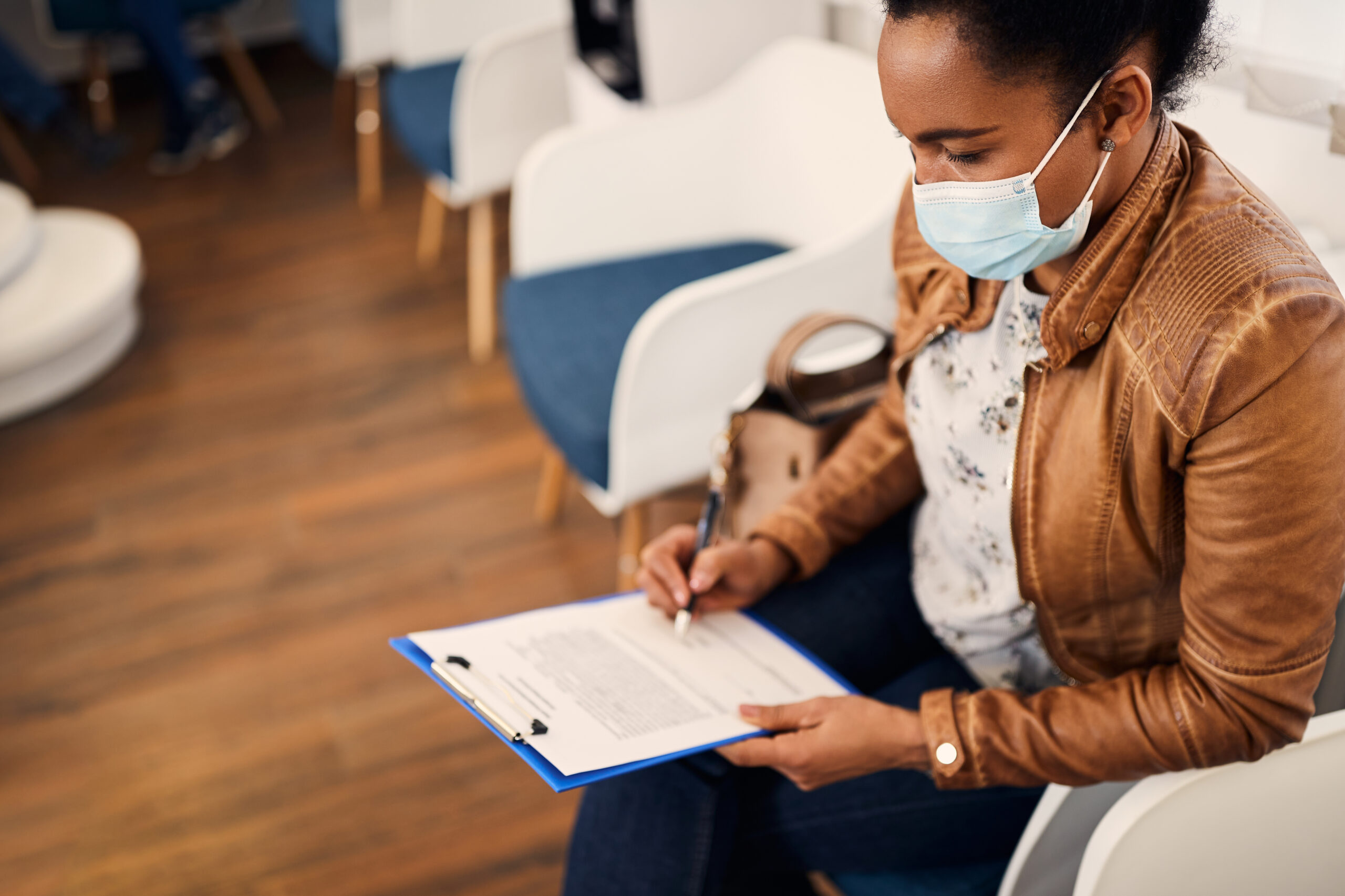
Black women experience great barriers to good health and quality health care. In nearly every state, Black women face higher levels of no health insurance coverage, poverty, food insufficiency, and housing insecurity compared to white, non-Hispanic men and women. These inequities operate as barriers to living healthy lives. A lack of health insurance coverage makes it more difficult for Black women to access and afford health care. Those living in poverty have higher rates of chronic diseases and overall worse physical and mental health. Those experiencing food insufficiency and housing insecurity also face worse health, including greater chronic health and mental health conditionsii. Deep inequities in our economic and health systems have led to Black women having access to fewer resources and overall poorer health.
Nationally, nearly one in eight Black women (12.0%) ages 19 to 64 lacked health insurance coverage between 2017 and 2021. In comparison, 10.2% of white, non-Hispanic men and 7.6% of white, non-Hispanic women did not have health insurance nationally. The share of Black women without health insurance varies greatly by state. For example, 6.3% of Black women in California lack health insurance while 19.5% of Black women in Texas lack health insurance.
More than one in six Black women (18.8%) ages 18 and over nationally lived in poverty in 2021 compared to 7.1% of white, non-Hispanic men and 8.9% of white, non-Hispanic women. However, Black women in many states fared worse. In Idaho, 38.4% of Black women live in poverty, over twice the national poverty rate for Black women. Meanwhile, 8.7% of white, non-Hispanic men and 10.8% of white, non-Hispanic women lived in poverty in 2021 in Idaho. Overall, Black women in many states report worse health than white, non-Hispanic men and women. The following table provides data by state on social determinants of health metrics for Black women.
Health Metrics for Black Women by State
